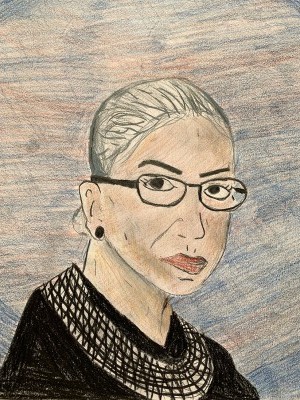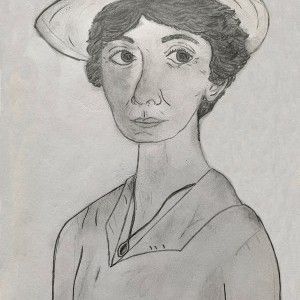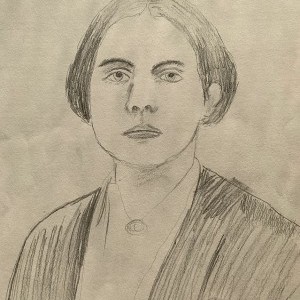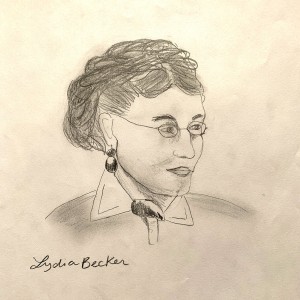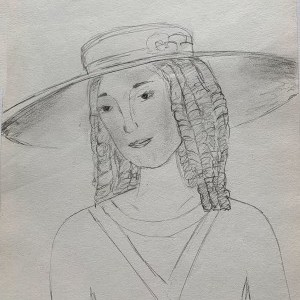Bronwyn Cavanaugh-Gouvea
Loyola School | New York, NY | 9th
Historical Figure I Admire
Ruth Bader Ginsburg
Letter to a Younger Self –
Dear Ruth,
To start off, I know you had a bit of a rough childhood. Your older sister died when you were two and your mother had cancer when you were just a girl and died before your graduation. I know you have had trouble coping with this loss. I am incredibly proud to say that you earned a bachelor’s degree worth high honors in Government and distinction in all subjects at Cornell University. Even though you struggled with the loss of loved ones you pushed through and achieved great things. I am glad you had the ambitious trait as I still have now. You had two great lows in your life but you overcame them and used your positivity and ambition to do great things.
You met your husband in Cornell and went on to Harvard Law School. Even though you were one of the few women there you did not let that affect you. Your ability to overcome things is incredible. Your husband soon got testicular cancer and you completed your studies along with his. To keep your family together you transferred to Columbia University for your last year at law school. You were rejected from law firms until you were offered a clerkship with Judge Edmund G. Palmieri of the U.S District Court for the Southern District of New York. After that major low in your life you received offers from major law firms. But instead you went back to Columbia. You then became a professor of law at Rutgers. You completed the textbook, Civil Procedure in Sweden after going to Sweden to study. By then you had two kids.
In 1970 you co-founded The Women’s Rights Law Reporter, the first law journal in the United States devoted to gender equality issues. You then received tenure at Columbia Law school after returning from Rutgers. In 1973 you argued your first case before the United States Supreme Court. After many hate comments and complaints about you, you founded the ACLU’s Women’s Rights Project. You published your next textbook on sex discrimination law in 1974. You started to speak as a visiting lecturer at many different law schools.
You appeared frequently before the Supreme Court arguing about gender equality. You then earned a national reputation as a leading advocate for the equal citizenship status of men and women. In 1980, President Jimmy Carter appointed you to the U.S. Court of Appeals for the District of Columbia Circuit.
After serving on the Court of Appeals, President Bill Clinton appointed you to the Supreme Court of the United States. Even though you had many difficulties with your family you pushed through and you were able to achieve your goals. Today I am grateful for everything and thankful that you were so ambitious and could overcome the hard parts in life. Now we have influenced many people, shared many ideas, argued many cases, wrote many textbooks, and made it onto the Supreme Court of the United States. I hope hearing about all the wonderful things you have done in your life motivates you and inspires you to do everything to the best of your ability. Even though life is full of struggles there is always a way out, there is always a loophole and always something you can do. I hope this letter finds you well! Good luck!
Explore the Archive
More From This Class
Click on the thumbnails below to view each student's work.Deadline Extended
There's still time to join Women Leading the Way.
Become a part of our storytelling archive. Enroll your class today.
Join the Project

